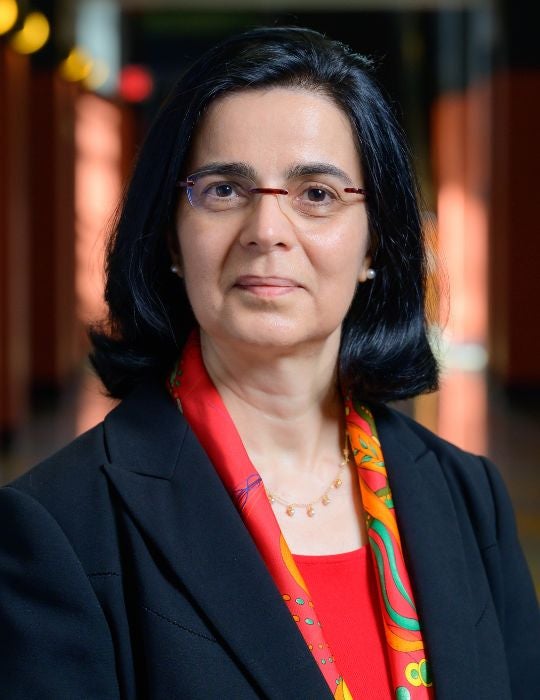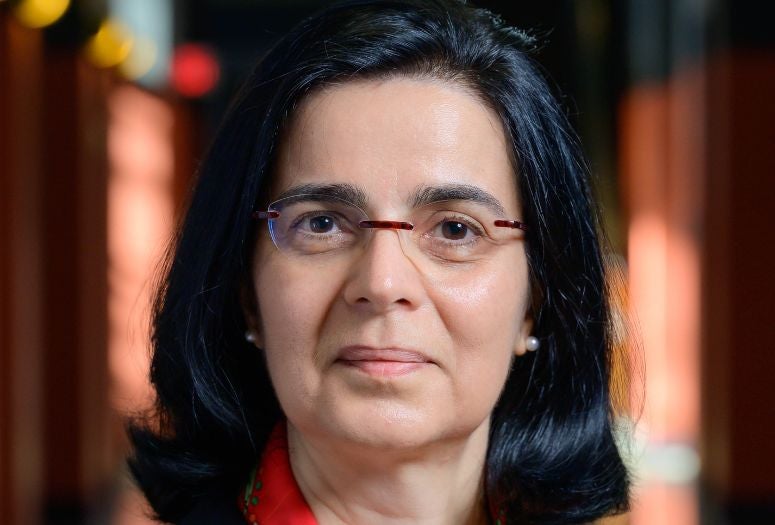In a landmark moment for Rice University, renowned computer scientist Lydia E. Kavraki has been named a University Professor, the institution’s highest academic rank. She becomes only the 11th person and the third woman in the university’s 112-year history to earn this prestigious title.

Known around the world for her pioneering contributions to robotics, artificial intelligence (AI) and computational biomedicine, Kavraki holds the Kenneth and Audrey Kennedy Professorship of Computing and appointments in four academic departments: computer science, electrical and computer engineering, mechanical engineering and bioengineering. She also serves as director of the Ken Kennedy Institute at Rice, a position from which she has led transformative interdisciplinary research initiatives across campus and beyond.
This rare recognition reflects not only the breadth and depth of Kavraki’s academic excellence but also her profound influence across disciplines and industries. She is the first faculty member in Rice’s history to be elected to all three U.S. National Academies — sciences, engineering and medicine — as well as the American Academy of Arts and Sciences.
“It is a tremendous honor to be named a University Professor at Rice, an institution that has supported and inspired me throughout my career,” Kavraki said. “I am deeply grateful to my students, colleagues and collaborators, and I hope to continue pushing the boundaries of science and engineering while mentoring the next generation of researchers.”
From her early days at Stanford University, where she developed a novel algorithm for robot motion planning that became the foundation of a new research field to her current work integrating AI and human-centered robotics, Kavraki has been at the cutting edge of technological innovation. Her algorithms, including the widely adopted Probabilistic Roadmap Planner, revolutionized the robotics field by reducing planning times for robotic movement from hours to seconds — and now to microseconds.
Her contributions reach far beyond academic circles. The Open Motion Planning Library, developed and maintained by her group, is embedded in almost every modern robotic system through its integration with the Robot Operating System. In essence, Kavraki’s code quietly powers an entire generation of robots — from industrial arms to NASA’s humanoid assistants in space.
Her impact on biomedicine has been equally profound. Drawing on her robotics background, Kavraki’s group develops tools to model protein interactions, predict drug metabolites and accelerate therapeutics design. Her computational platforms are widely used in immunotherapy, including at the University of Texas MD Anderson Cancer Center, where her docking tools help tailor cancer treatments to individual patients. She has developed web-based platforms for analyzing molecular function that are used by scientists worldwide, some of which have operated continuously for more than a decade.
“Lydia’s appointment as a University Professor reflects not only her extraordinary scholarly achievements but also her visionary leadership and commitment to Rice’s mission,” President Reginald DesRoches said. “Her work embodies the interdisciplinary excellence that defines our institution, and she continues to make Rice and the world better through her innovation, integrity and mentorship.”
At the Ken Kennedy Institute, Kavraki has cultivated a university-wide network of more than 250 researchers from seven schools and 27 departments. She has spearheaded collaborative efforts in AI and data science, helped attract major research funding and positioned Rice as a leader in the fields of AI and computing, supporting, among others scientific workshops, conferences, specialized training programs and industry partnerships.
“Professor Kavraki is a once-in-a-generation scholar whose work has changed the course of multiple fields,” said Amy Dittmar, the Howard R. Hughes Provost and executive vice president for academic affairs. “She has an exceptional ability to connect fundamental science with real-world impact, and she is an inspiring role model for our community.”
Her recognition spans the globe. She is a fellow of numerous professional associations, including the Association for Computing Machinery, Institute of Electrical and Electronics Engineers, American Association for the Advancement of Science, Association for the Advancement of AI and the American Institute for Medical and Biological Engineering. She has received many of her fields’ top honors, including the IEEE Frances E. Allen Medal, the ACM Athena Lecturer Award and the ACM/AAAI Allen Newell Award. Kavraki has been named to MIT Technology Review’s TR100 list and Popular Science’s Brilliant 10 and is a recipient of Rice’s highest internal awards for teaching, research and service.
Equally committed to service, Kavraki plays a leadership role in national science policy through the national academies, where she has chaired or co-chaired initiatives on health, AI and ethics. She also serves on editorial boards of leading journals and national committees that influence the future of robotics, AI, data science and medicine. At Rice and beyond, she is known as a generous mentor, guiding dozens of doctoral students and postdoctoral researchers who have gone on to leading roles in academia, industry and government.
“What distinguishes Lydia is her deep sense of responsibility — to scholarship, to students and to society,” said Luay Nakhleh, the William and Stephanie Sick Dean of the George R. Brown School of Engineering and Computing. “She is a brilliant computer scientist, a devoted mentor and an inspiring leader. Her promotion to University Professor is a well-earned recognition of her transformative impact.”
With this honor, Kavraki joins an elite group of University Professors that includes Naomi Halas, a pioneer in the field of nanophotonics; physicist and former White House science adviser Neal Lane; former Rice President David Leebron; bioengineer and global health pioneer Rebecca Richards-Kortum; mathematician Richard Tapia and computer scientist Moshe Vardi. Four others have passed away: Nobel laureate chemists Robert Curl and Richard Smalley, former Rice President Malcolm Gillis and computer scientist Ken Kennedy ’67.



